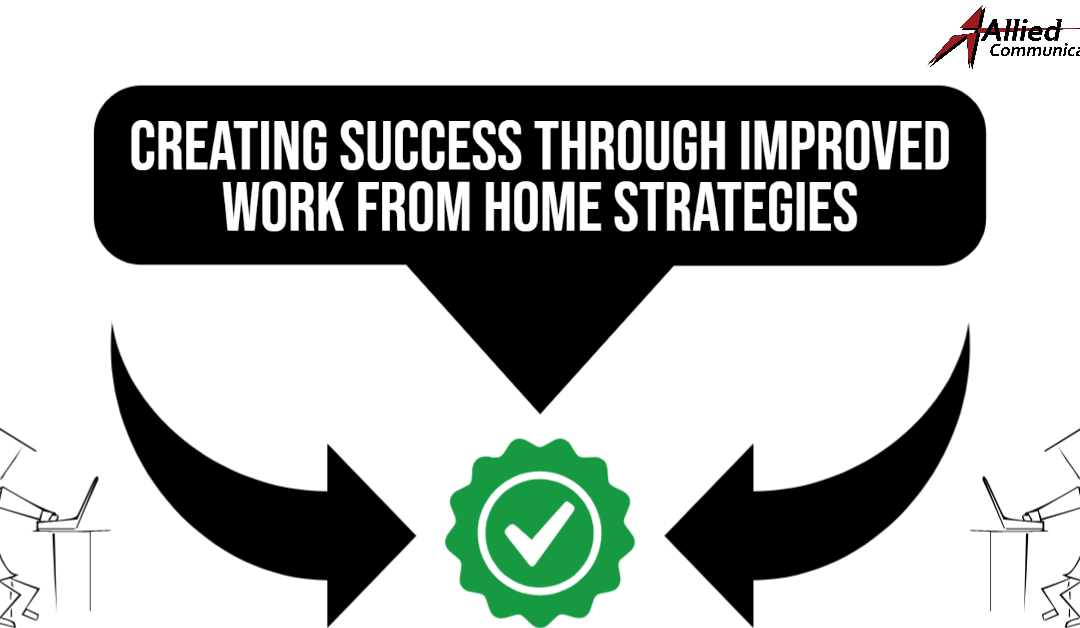Working from home has become a part of our ‘new normal’. Many businesses that may have previously been resistant to allowing employees to work remotely have been forced to implement those services. Like any new process, there were many lessons learned and new challenges to overcome to get everyone up and running smoothly.
There have also been some discoveries.
For many companies, a remote strategy has allowed them to survive, and in some cases prosper during disaster events like the COVID-19 crisis. Additionally, long term efficiencies have been found in extending the work from home option through employee work life balance, potential real estate savings, and a built-in emergency plan for inclement weather.
Company Culture is Shifting
Recent events have certainly made a home-based strategy more valuable than ever. However, companies have steadily been adopting policies that accommodate their remote staff for quite some time. Since 2005, regular work at home has increased by 173%.
So, what does this mean for you?
 Remote work is not just a temporary solution, it’s here to stay. Flexibility is in high demand and it is a factor that will affect the acquisition and retention of employees for years to come. The Millennials that currently dominate the workforce are not the only influencers of this culture shift. Baby Boomer’s and Gen X employees have also been consistently expressing their increased desire to have a remote job option.
Remote work is not just a temporary solution, it’s here to stay. Flexibility is in high demand and it is a factor that will affect the acquisition and retention of employees for years to come. The Millennials that currently dominate the workforce are not the only influencers of this culture shift. Baby Boomer’s and Gen X employees have also been consistently expressing their increased desire to have a remote job option.
Here are the facts
- 68% of Millennials say that a work from home option would greatly influence their decision to work for a company.
- By 2025, Millennials will occupy approximately. 75% of the workforce
- 56% of the U.S. workforce holds a job that is compatible (at least partially) with remote work
- “Our best estimate is that 25-30% of the workforce will be working-from-home multiple days a week by the end of 2021” – Kate Lister, President of Global Workplace Analytics –
- “34% of U.S. workers would take a pay cut of up to 5% in order to work remotely. –
- Over 70% of CIO’s surveyed said that they will continue a WFH strategy – Avant
Making WFH Work
First, we need to have the right equipment
- Mirror what the employee has at work – if they have two monitors, they will need that at home as well.
- Laptop users can benefit from wireless keyboards, mice, and docking stations for WFH.
- Equip users with softphones and headsets so calls they can take calls from their PC.
- Video conferencing capabilities for meetings and webinars to keep your team members in the loop.
Second, we need to address security.
- User education is critical. A security awareness program will help mitigate the risk of breach by helping the employee understand what to look for and what not to do.
- Securing the connection is critical. If your user needs resources, like files from the office or data center computers, a secure solution like a VPN, File sharing service, or virtual desktop is suggested.
- Take Inventory of what data is stored locally on an employee’s WFH computer in the event of an employee exit event. Often forgotten is local data like email and files synced locally that remain on the asset.
Finally, we need control points
- Unified Communication (UCaaS) and Contact Center (CCaaS) solutions can give you actionable insight into call agent activity, call handling, and overall productivity.
- Chat based solutions with presence capability can help managers track employee’s activity.
- Security solutions with logging and auditing can help you keep file and data control.
- Video conferencing can allow for regular huddle calls to keep your team connected.
The benefits of WFH are real
The evolution of technology over the last decade has been the great equalizer in making WFH a real option for businesses today. There are many advantages to incorporating remote workers into your business including finding the best talent no matter where they are located, taking advantage of lower cost areas of hire, and an overall improvement in work life balance.
The fears of a remote workforce have been offset by technologies that connect people in ways that feel native to users and keep everyone as part of the team.
If your team has any questions about working remotely or would like to learn more about how quickly we can get you set up, contact us and speak with a representative, today!
203.937.0363
sales@alliedphone.com



Recent Comments